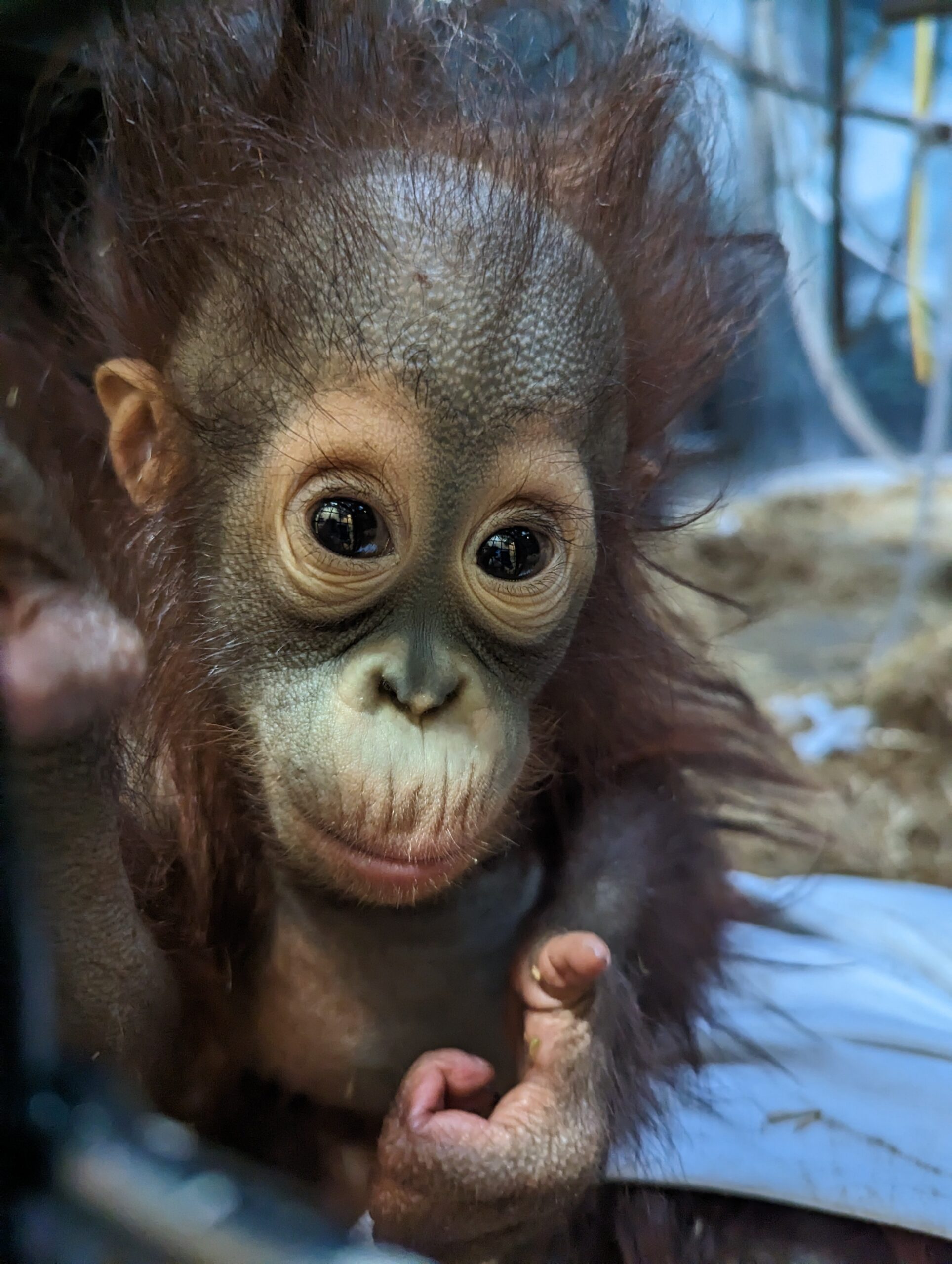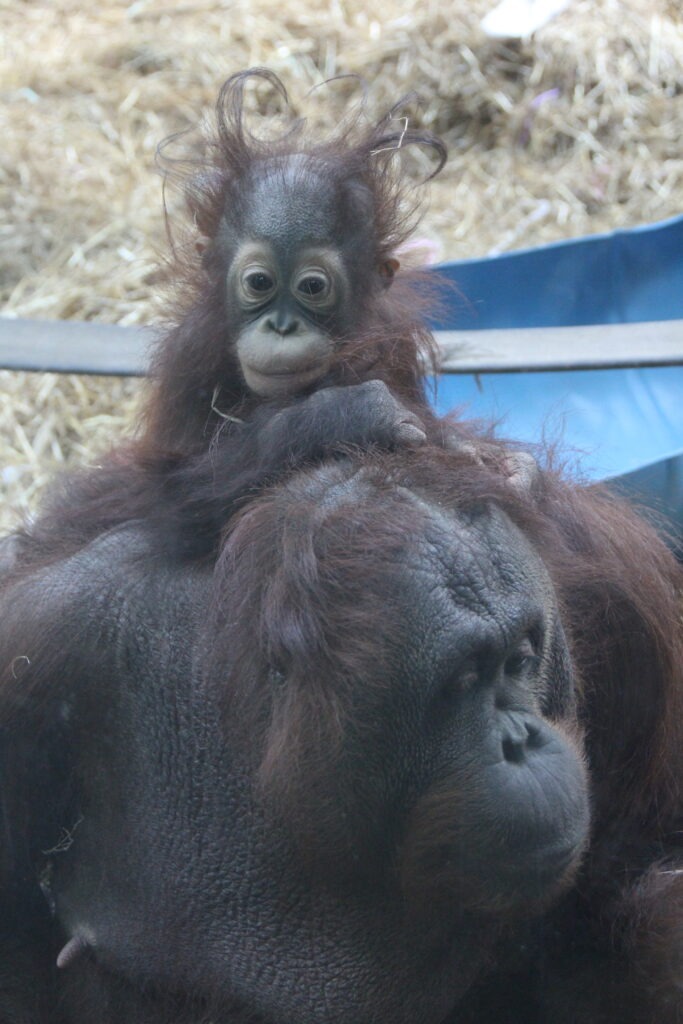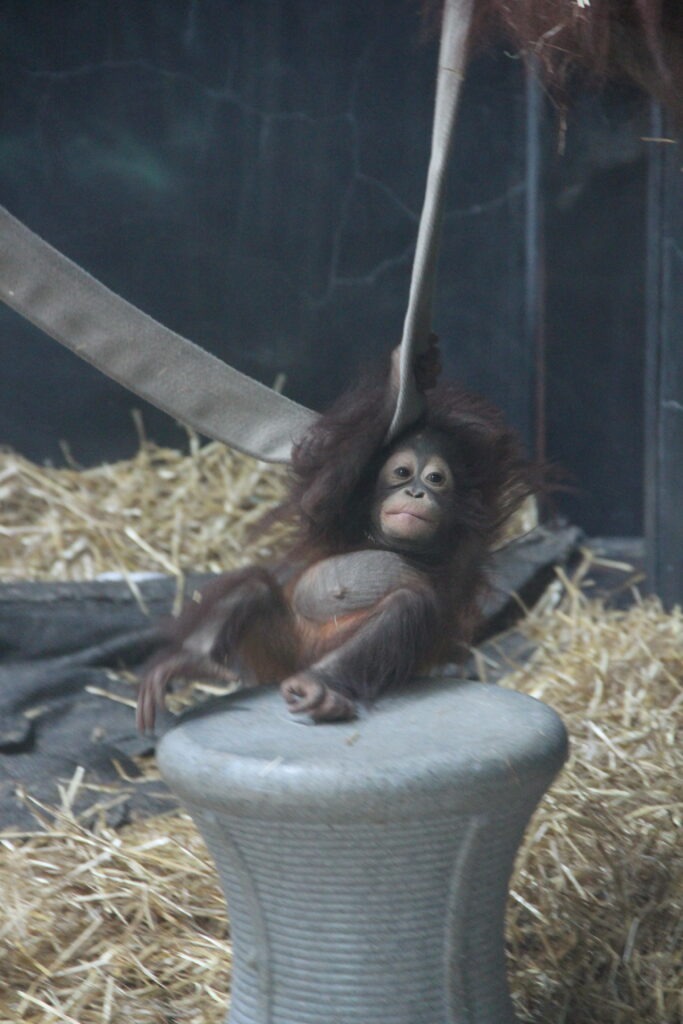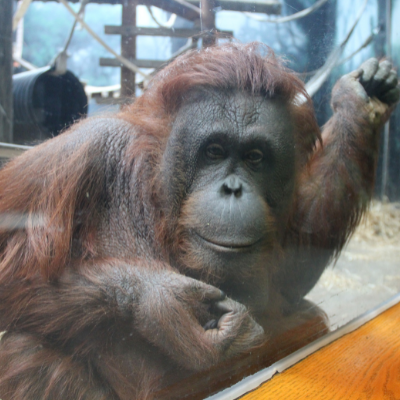It’s hard to believe that Menjadi is almost one already! It’s been an amazing year watching her grow.
Animal enrichment is a great way to celebrate!
Primates, like many of our larger mammals, need enrichment every day. In a Zoo setting, orangutans do not have to stay on the lookout for predators, or spend the day searching for food. A large part of our job is to make sure they have an enriching and stimulating environment. But orangutans are very strong, which means they need very strong enrichment toys. Some of these items can cost upwards of $1000!! For Menjadi’s birthday, we are asking for donations that will be used to purchase some of these larger items. 100% of the donations made through this link will go directly towards purchasing animal enrichment.
What a year it’s been!



Orangutans are one of the five types of great ape, along with chimpanzees, gorillas, bonobos, and humans. Orangutans are the least-studied and most unique, of the great apes.
How we’re helping.
Almost half of the wild Bornean Orangutan population lives in forest areas earmarked for conversion to agriculture uses. With the current scale of habitat exploitation, only a small percentage of current habitat will remain undisturbed by 2030. Henry Vilas Zoo Executive Director Ronda Schwetz serves as the Co-Chair of the Associations of Zoos & Aquariums (AZA) Orangutan Saving Animals from Extinction (SAFE) program and is a steering committee member of the Orangutan Species Survival Plan. To date, Orangutan SAFE has 16 partners in other AZA zoos and together have donated over $135,000 to orangutan conservation efforts in both Borneo and Sumatra since 2020.

It’s a tricky word!
It’s “Orangutan” not “orang”!
The use of the word “orang” in place of “orangutan” has become so widespread that it even shows up in some dictionaries as an alternative but not only is it linguistically wrong, it’s culturally insensitive and runs in defiance of Islamic beliefs common throughout most of the area where orangutans live.
Orangutan does translate as “person of the forest,” with orang meaning “person” and (h)utan meaning “forest.” But the word orang by itself is also a classifier in the native language. Chopping the word orangutan in half does not result in two halves that necessarily mean what they meant when they were together in one-word harmony.